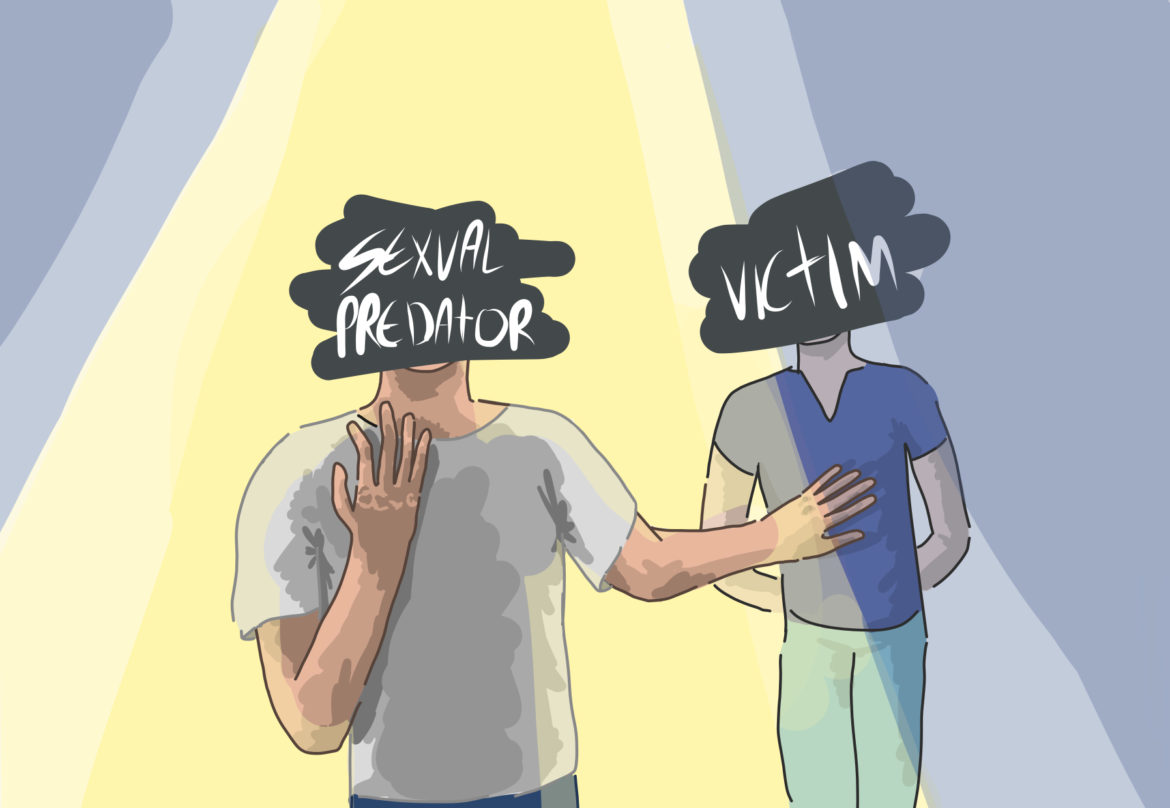Since allegations against Hollywood producer Harvey Weinstein, the #MeToo movement has caused an increase in allegations of sexual assault. Some have expressed regret that the careers of these sexual predators may be over, but this ignores the harm these predators may have done to the careers of their victims. Illustration by Audrey Kennedy
In recent weeks, many allegations of sexual misconduct have emerged as the #MeToo movement has supported women sharing their stories.
Numerous allegations have surfaced recently, accusing prominent figures in media, politics and athletics, of sexual misconduct. The general reaction of the public has been one of horror and shock.
But sometimes, the horror is not just about the damage these predators caused to victims, but also the lost talent of the accused.
Comedian Louis C.K. was considered a comedy genius by many, and the recent allegations of sexual misconduct caused some people to express remorse that such talent will now go to waste.
It is a blow to learn that someone you admire is a sexual predator, but whenever we express disappointment and regret that we are losing a force of talent, we are ignoring the women that have been silenced and pushed out of their careers because of this same toxicity.
Many women face incredible shame, fear and pressure in the workplace after having been harassed or assaulted, and the number of women who have faced this is unquantifiable — because they have been pushed out of their career before reaching their full potential.
Glenn Thrush, a reporter for the New York Times, was recently accused by several women of unwanted sexual advances. At the time, all of the women were young journalists and Thrush was seen as someone who could make or break the career of someone trying to make it in journalism. So most of the women tried to pretend nothing happened.
But one of the alleged victims, Laura McGann, felt personal and job repercussions after unwanted advances from Thrush.
“Gradually, things in the office started to change for me. I had a nagging sense that I just wasn’t as respected as I used to be,” McGann wrote, reflecting on the aftermath of an uncomfortable interaction with Thrush. “I started to think maybe I shouldn’t be in journalism if I couldn’t hang in a tough newsroom. I found myself on edge, nervous and anxious all the time. I started to believe I had brought this all on myself.”
Because of Thrush’s actions, McGann felt that her career could not advance as she wanted it to, and it is impossible to know the incredible numbers of women, who could have been leaders in their fields, whose careers were cut short because of this fear.
As more harassment and assault allegations come forward, it’s important to remember that we are not just losing the career of the predator — we may have already lost the careers of the victims.
More from Elena Gilbertson Hall
